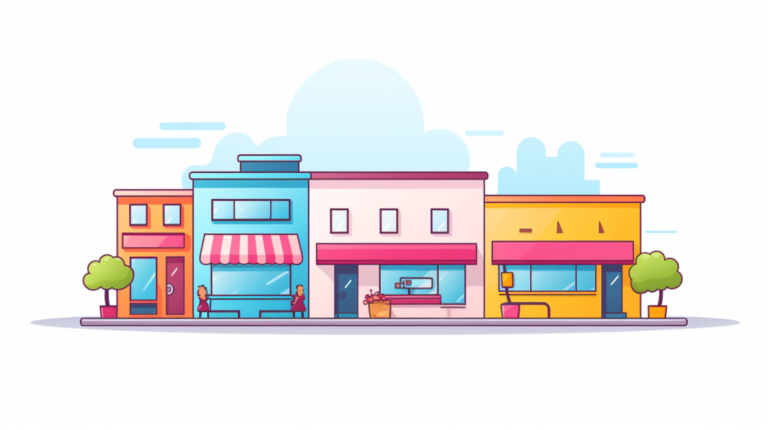Career Path Vs. Job: What’s The Difference?

Navigating the tricky waters of understanding the difference between a job and a career can seem daunting. Trust me, I’ve embarked on this journey myself, diving deep into exhaustive research to untangle this intriguing conundrum.
This blog aims to shine light on the facets that set these two concepts apart – from perspective shifts to making milestones in progressions from an everyday job towards marched pursuits of a lifelong career.
Are you ready to take off on an exciting expedition towards comprehending your professional path?.
Key Takeaways
- A job is a spot of work. It’s doe jobs for pay. A career is your whole life path in the work world.
- Jobs are short – term while careers last long and have goals. Both can bring joy and wins, but a career feels better.
- Moving from a job to a career needs planning, action, and checking on your progress regularly.
- In your mind – set; good managers run both jobs and careers. But only people who truly want to learn more pick careers over jobs for more money. Also in careers, workers care about their values matching with their tasks at work.
Defining a Job
A job is a spot of work. It’s when you do some tasks and get paid for them. You can find full-time or part-time jobs. They each have the same pattern: you do your duties, and then go home.
Some people see a job as just an income source, nothing more.
Each day could be alike with fixed hours to clock in and out. Still, it doesn’t mean that this type of work has no worth. Even simple jobs give us ways to learn about our gifts and interests.
At Cape Fear Community College (CFCC), students are urged to view their current job as a stepping stone into their chosen field.
Defining a Career

A career is more than a job. It’s your lifelong path in the work world. You need to have special training for it. Cape Fear Community College says that every career starts somewhere.
This can be any job you like doing.
Your job today could end up being part of your career tomorrow. The things you enjoy in your current job can give you clues about what kind of career to pick. Part of this process is finding out what interests and talents you have.
Comparing Job and Career
Join me as we delve into the intricacies of a job versus a career, unraveling aspects like time horizon, purpose and fulfillment, alongside essential skill and experience development.
Will your next step be just another job or choose a fulfilling career? Stick around to unveil more!
Time Horizon
Jobs have a short time horizon. People often take a job for quick income. It’s not always about the future or long-term goals. On the other hand, careers are all about the time horizon.
A career is your lifework. It goes on for many years and it moves forward based on your lifelong ambition and your dreams. Realizing this can make us see how a job differs from a career in terms of its length and our plans for the future.
Purpose and Fulfillment

A job is like a bus ride. A career is more like a long trip in a car that you drive. In life, we have goals we want to reach. These are places on our map for the trip. A job only brings short joy and small wins from day-to-day work tasks or paychecks at the end of the month.
But careers give us bigger wins and deeper joy as we grow and learn new things over time; these make us feel “full” on the inside.
Both jobs and careers provide money for food, rent or buying nice things but jobs most often only offer an income without any room to win big (become boss) unless there’s special training provided in-house.
In contrast, through education programs offered by schools like Cape Fear Community College (CFCC), anyone can prepare themselves for better opportunities within their dream roles thought of during primary school times as part of lifelong ambitions!
However, it’s not just about earning more money! Deciding between having either a job or pursuing a career needs lots of thinking especially about how each could impact your happiness level since one offers little chance to support society whereas full-steam ahead towards achieving longstanding goals – ultimately this is what people say gives them so-called ‘purpose’ in life – tends to lead towards rich rewards such as meaningful contribution to societal development beyond mere personal financial gain.
Serve others well whilst serving yourself with skills developed from formal education received at CFCC — who knows where these adventures might take you?.
Skill and Experience Development
In the world of work, skills and experience matter a lot. This is more important in a career than in a job. In jobs, you only do given tasks. But careers are different. You learn new stuff and get better at it over time.
CFCC helps out by giving tools for this growth. It gives access to learning for all its students keen on their dream careers. Career seekers gain hard skills and soft skills from these programs offered by CFCC.
How to Transition from a Job to a Career
Making a transition from a job to a career needs careful planning. First, identify your long-term professional goals. Know exactly where you want to be in the coming years. Next, create an action plan on how to achieve these targets.
Strategize based on your current skills and opportunities available for advancement. Lastly, monitor your progress regularly over time – adjust as necessary to stay aligned with your objectives!
Define Your Career Goals
Begin by knowing what you want for your work life. Think about the job that will make you happy in ten or even twenty years from now. Make a list of your desired jobs. CFCC has resources like the O*NET Interest Profiler to help with this step.
This tool lets you learn more about areas that interest you, and see potential career paths related to those interests. Knowing what kind of job you want helps form clear goals towards making it into a growing career path.
Create an Action Plan

First, you need to get the right tools. CFCC offers a tool called O*O*NET Interest Profiler. This helps you find out what jobs match your interests. Once you know, it’s time to set your plan in action.
Think about your dream career every day and work for it step by step. It could be as small as reading up on a new topic related to your field or big like signing up for special training or education programs at Cape Fear Community College (CFCC).
Don’t stop till you reach each goal that gets you closer to your dream career!
Monitor Your Progress
Keep a close eye on your steps forward. It helps to know if you are moving in the right direction. Check how well you are doing in meeting your career goals. At CFCC, we lend a helping hand in this task.
We offer coaching and other resources to track progress effectively. Make changes when needed to stay on course with your career path.
The Interplay of a Job and Career
A job and a career are like two parts of a whole. They play with each other in many ways. At Cape Fear Community College, we learn that every job is the first step to a big career.
Your current work can bounce you into your dream field one day! It’s good to find out what you love about your present job. This shows what skills and interests you have. You might even use special tools like O*NET Interest Profiler to help guide you on this path! Your salary is also key when thinking about jobs and careers because it should sustain you well in the long run.
Jobs give quick money, but careers often bring long-lasting rewards after some special training or learning more okay? So always remember that jobs give us practice for our real-life work – our life-long goal which we call Career.
The Impact of Mindset: Job Vs. Career
How does your mindset play into the job vs. career discussion? This section will delve into aspects like long-term commitment, gaining experiences over pursuing paychecks, and aligning personal values with professional pursuits.
Curious to know more about how having the right mindset can potentially enhance your career development? Dive in for an insightful look at these compelling dynamics!
Management and Long-term Commitment
Jobs call for good managers. But a career needs long-term commitment too. As the boss, your job is to guide your team. You need to make sure they grow and learn new skills. CFCC gives students tools like the O*NET Interest Profiler.
The tool helps them find out what they are good at. They set goals and work hard to reach them in their jobs first, then in their careers later on.
The Pursuit of Experience Over Pay

Many people choose to grow in their career instead of just getting more money. They want to gain skills and learn new things. In the long run, this can lead them to better jobs and higher pay.
Being involved in a job for personal growth is part of a career path, not just a job. It’s about looking forward, building on your skills and asking for challenges that will make you grow.
Your work becomes less about the dollars you earn today but more about what you could be making tomorrow.
The Notion of Value Alignment
Feeling in tune with the values of your work matters a lot. It’s one key thing that sets jobs and careers apart. In jobs, people tend to just do what they’re told so they get paid at the end of the day.
But in careers, people pay more attention to what is important to them.
For me, value alignment means my beliefs match up well with those of my job or career. This closeness makes me feel good about each task I complete. Simply put, when your work shares your values, it can make you love doing it every single day!
Conclusion
Knowing the difference between a job and a career can shape our work life. It all lies in our goals, drive to learn, and feeling of joy from what we do. Let’s see each day as an exciting step on our path towards the career we love!
FAQs
1. What is the difference between a job and a career?
A job can be a full-time or part-time position that provides income. A career is an occupation, profession, or general course of action followed over time.
2. Why do people use short-term jobs instead of long-term careers?
People may choose short-term jobs due to economic needs or when they want to gain work experience for better future job prospects.
3. How can Career Counselors help with turning a job into a career?
Career Counselor helps with education and training goals, resume development, interview prep, primary and career exploration plus providing job search assistance towards professional employment growth.
4. Can having multiple careers improve salary earning potential?
Yes! Having more than one career often leads to higher pay grades and improved wage structures because it enhances skill sets.
5.How does my work contribute to society?
Not only does your work provide you payment; but also significantly impacts society by offering needed services or products while instilling personal satisfaction through meaningful contribution in return.
6.What are some risks tied-in if I keep changing from one job to another?
Job hopping might negatively affect your Professional Employment History’s stability as Employers trend towards seeking steady employees who’ll invest emotionally for longer terms fostering company values & brand loyalty.






